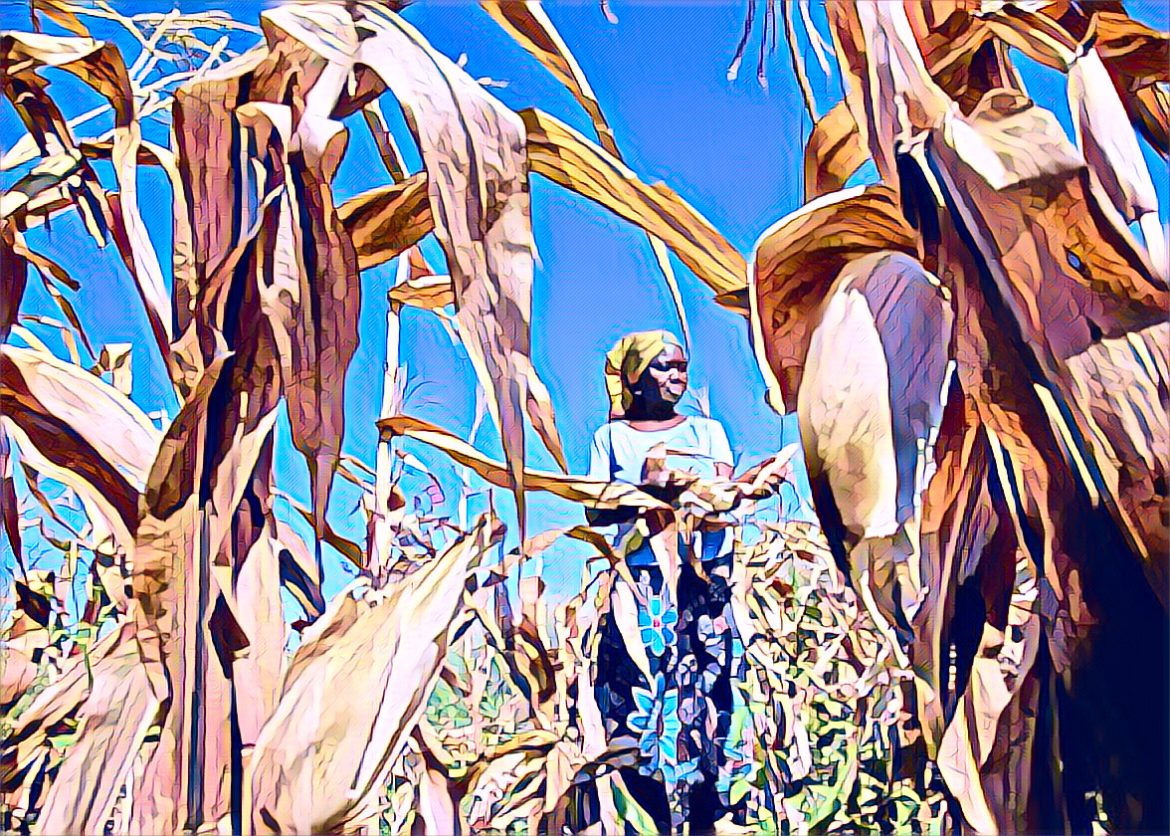Zimbabwe’s agricultural policies have worsened the drought crisis of 2023-24, according to experts. President Emmerson Mnangagwa highlighted the importance of partnerships with South Korea during the South Korea-Africa summit in Seoul. Zimbabwe has declared the agricultural season a disaster, largely due to the El Niño phenomenon, which has left over 2.7 million people food insecure and in need of $3 billion to address the shortfall.
While El Niño played a significant role, agricultural policies since the early 2000s have also contributed to the crisis. Policies such as the land reform program, Command Agriculture, Pfumvudza/Intwasa, and the Presidential Goat programs faced issues of transparency, corruption, and poor planning. These problems have overshadowed their intended benefits.
The flawed implementation of these programs weakened the agricultural sector’s resilience to climate change, leading to the current crisis. Mnangagwa’s call to learn from South Korea’s agricultural expertise appears well-founded.
The El Niño phenomenon has highlighted the limitations of Zimbabwe’s policies, making strategic partnerships crucial for future success. Any examination of Zimbabwe’s food crisis must start with the chaotic land reform program, which turned Zimbabwe from a “breadbasket” to a “basket case.”
Originally aimed at reducing household poverty by giving land to smallholders, the land reform led to a food crisis. Productive commercial farms were reduced to small holdings, and in some cases, the political elite took more land than they could use and later abandoned it. These once-productive farms now produce hay and logs, a tragic outcome.
The program was implemented without proper institutional mechanisms and financing opportunities for newly resettled farmers. As a result, both the program and the farmers were set to fail, and fail they did. Corruption and theft dominated this program and extended to other government agricultural initiatives aimed at building climate resilience and enhancing food security.
The Auditor-General and Parliament’s Public Accounts Committee revealed that the Special Maize Program, known as Command Agriculture, involved a murky and illegal process. The Finance Ministry and the Reserve Bank of Zimbabwe approved Treasury Bills worth $1.6 billion to finance the program, violating the country’s laws.
Additionally, the $88 million Presidential Goat Scheme, led by the Ministry of Lands, Agriculture, Fisheries, Water, and Rural Development, failed despite funding. This failure prejudiced beneficiaries who needed to build household resilience, highlighting a systemic issue: corruption that undermines the benefits of agricultural policies.
Zimbabwe’s economy has shifted from agriculture to extraction, but investing in agriculture is more rewarding for poverty reduction. The World Bank shows that 80% of marketed agricultural production in Africa comes from smallholders, with 60% being women. Thus, investment in agriculture can help achieve sustainable development goals, especially ending poverty.
Despite neglect and corruption scandals, the importance of the agricultural sector in Zimbabwe cannot be understated. The government should invest boldly in agriculture to boost the economy, address rural poverty, and build climate resilience. Policymakers must develop and implement strong policies with corresponding institutional and legal frameworks.
South Korea’s experience underscores the agricultural sector’s importance in a developing economy like Zimbabwe. South Korea’s first National Economic Development Plan aimed for food self-sufficiency, making it a national priority. Food security is also a priority for Zimbabwe’s National Development Strategy 1. However, Zimbabwe lacks the research and technology investment seen in South Korea.
South Korea’s success in agricultural processes was driven by government commitment, zero tolerance for corruption, and successful agrarian reform. For Zimbabwe to overcome the current food crisis and build a resilient agricultural sector, the solution lies in addressing land ownership issues, investing in strong policies, and empowering institutions for efficient land use.
Zimbabwe’s 2023-24 drought crisis reveals significant policy shortcomings. Urgent reforms and strategic partnerships are essential for a sustainable agricultural future. The nation must address corruption, improve transparency, and learn from successful international models to secure food security and resilience.
Source: Newsday


